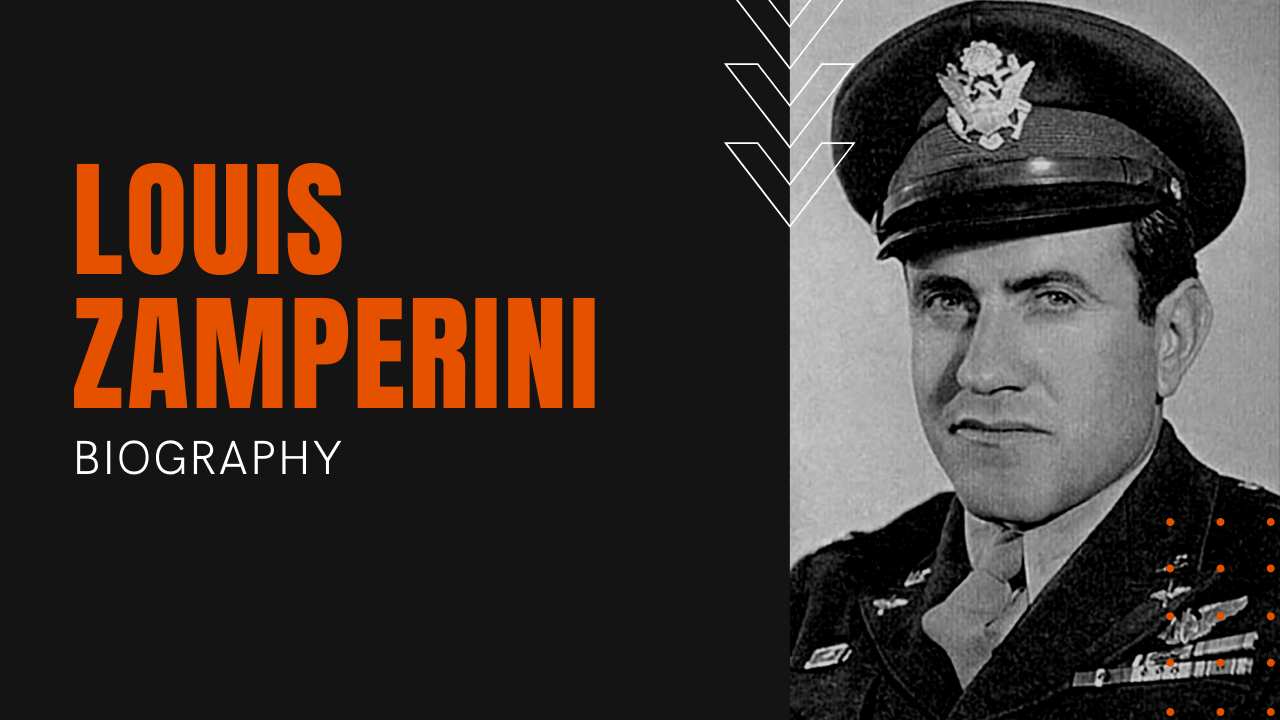Louis Zamperini

Born in 1917, Louis Zamperini was a tough kid in Torrance, California. A smoker by age five, Louis was always getting into fights, while his favorite trick was stealing beer from bootleggers.
When the Chief of Police and his high school principal tried to redirect the misguided youth into track and field, after a shaky start due to his long history of smoking, in 1934, Louis broke the World Interscholastic mile record of four minutes 21 seconds, a record that would stand for the next two decades.
Soon afterwards, the Torrance Tornado, as he was nicknamed, qualified for the 1936 Olympic Games, taking eighth place in the 5,000 meter, but only after he ran the last quarter-mile in just 56 seconds. The feat prompted a face-to-face meeting with Adolph Hitler, just three years before Nazi troops would blitzkrieg their way into Poland. After war broke out, Louis left USC and joined the Army Air Corp in the Pacific Theater, earning the name “Lucky Louis” after cheating death multiple times as a bombardier, until his luck ran out of May 27th, 1943.
On a search and rescue mission 800 miles from land, his B-24 went down at sea, killing eight crew members but sparing Louis, the pilot, Russell Phillips and tail gunner Francis McNamara. The survivors floated in a life raft for 27 days, surviving on Albatross meat and small fish, including the livers of small sharks they caught by hand. On the 27th day at sea their luck turned south yet again, when they were spotted by Japanese fighters.
The three men were strafed in a 30-minute assault, but thinking the castaways were dead, the Japanese finally left them alone. All three castaways had made it through the attack without a scratch. Six days later, McNamara passed away on their 33rd day adrift, and as bad luck would have it, on their 47th day, having drifted some 2,000 miles to the Marshall Islands, they were made prisoners of war by the Japanese.
Louis weighed just 65 pounds, and after being transferred to Execution Island—so named because most prisoners of war that were taken there were executed by decapitation with a samurai sword. Louis and other Allied prisoners were abused daily and kept on a starvation diet. On three occasions Louis was subjected to medical experiments, but after 47 days on Execution Island, Louis was transferred to a prison of war camp, where he and others were horribly tortured by Mutsuhiro Watanabe—a.k.a. The Bird—an experience so horrifying that Louis still could not bring himself to talk about his experiences even fifty years after the war.
After the Japanese tried to use his Olympic fame in a propaganda radio broadcast, Louis refused and was reassigned to a labor camp. Out of spite, the Japanese transferred The Bird to Louis’ camp, where torture would begin anew. Freed at war’s end, Louis married a Miami socialite and began drinking heavily as a way to chase The Bird and his memories of torture from his mind. With his marriage on the rocks, after his wife converted to Christ after a sermon by evangelist Billy Graham, Louis followed his wife’s lead and converted to God.
